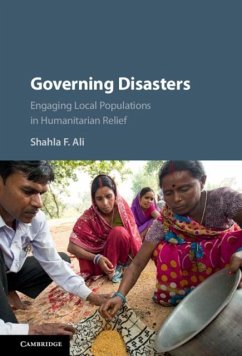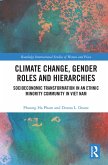With growing awareness of the devastation caused by major natural disasters, alongside integration of governance and technology networks, the parameters of humanitarian aid are becoming more global. At the same time, humanitarian instruments are increasingly recognizing the centrality of local participation. Drawing on six case studies and a survey of sixty-nine members of the relief sector, this book suggests that the key to the efficacy of post-disaster recovery is the primacy given to local actors in the management, direction and design of relief programs. Where local partnership and knowledge generation and application is ongoing, cohesive, meaningful and inclusive, disaster relief efforts are more targeted, cost-effective, efficient and timely. Governing Disasters: Engaging Local Populations in Humanitarian Relief examines the interplay between law, governance and collaborative decision making with international, state, private sector and community actors in order to understand the dynamics of a global decentralized yet coordinated process of post-disaster humanitarian assistance.
Dieser Download kann aus rechtlichen Gründen nur mit Rechnungsadresse in A, B, BG, CY, CZ, D, DK, EW, E, FIN, F, GR, HR, H, IRL, I, LT, L, LR, M, NL, PL, P, R, S, SLO, SK ausgeliefert werden.









